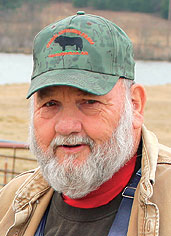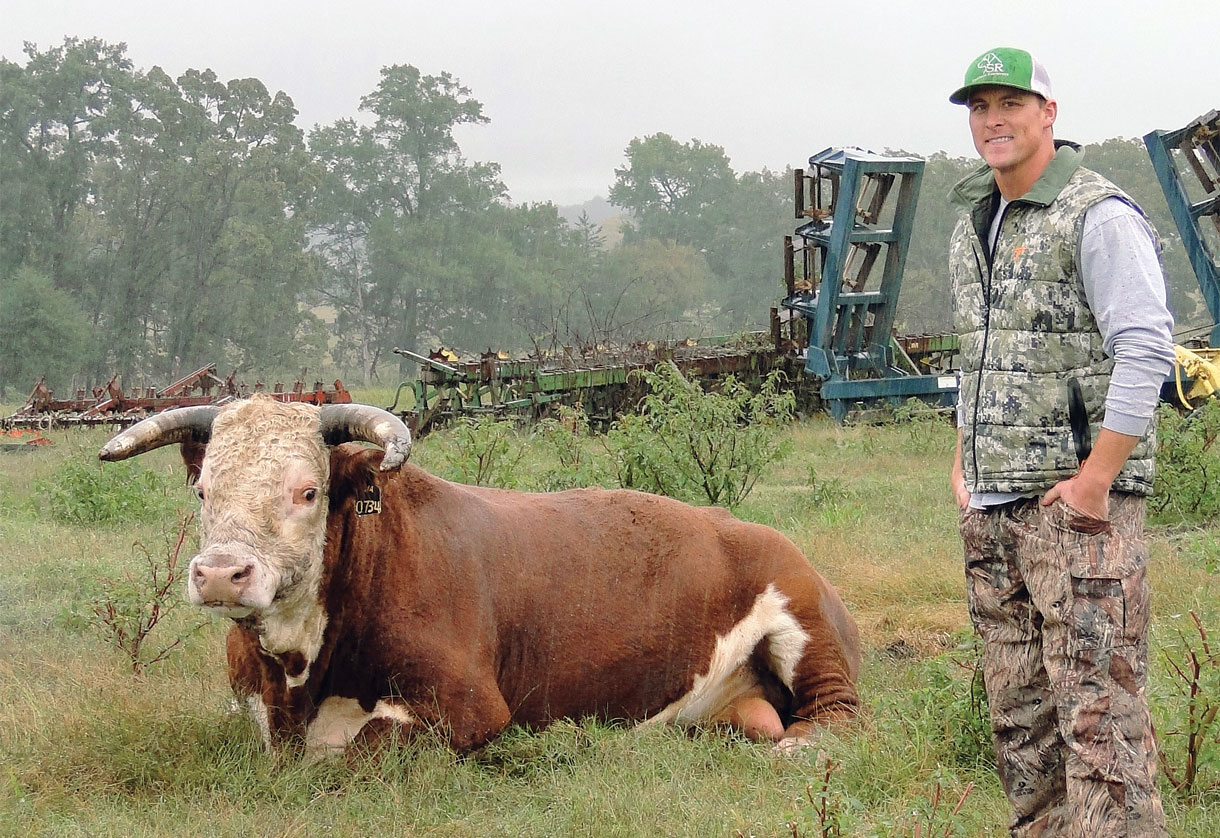
Howe, Okla., has a country road with the quaint name of Bean Patch Loop. The road provides a 20-acre homestead for Dewey and Teresa Shepherd and their Pineywood cattle. The couple also owns 9 acres in Wister, Okla., which serves as one of three pastures used on a rotational basis.
The couple, now retired, were both employed off the farm. Dewey spent most of his career working for Johnson Control and is a Vietnam veteran. Teresa worked in home health, at Whirlpool, and in a governmental research center near the Kerr Center. The couple bought the property in Wister as their home until they moved into a home they designed and built in Howe in 2011.
Though neither was raised on a farm, both came from the area and wanted that kind of life for themselves and their family, which now consists of two children and six grandchildren. In Wister when the family came to visit, they were, according to Teresa, “stuck up under each other’s tails” because the home had so little room. Teresa finally issued an ultimatum to Dewey, “Either build me a house or sell the land.”
The Shepherd’s story is a study in breeds as the couple searched for the one that best fit them. They started with Santa Gertrudis. Dewey said, “They were really gentle. Put a kite string around them and they thought they were caught.” However the Shepherds felt their reproduction rate wasn’t high enough, so they switched to Black Baldies and Red Motleys, but their bull liked to wander, much to their neighbors’ dismay. When a new fence didn’t solve the wandering problem, the Shepherds switched to Limousin. They love the taste of the meat, but this bull too loved to wander although the neighbors didn’t complain in this case because they like the breed. Then the Shepherds tried Brangus but had calving difficulties. Dewey became discouraged and said, “I got tired of haying and fighting the breeds so I got out of the business.”
Teresa, however, really missed the cattle. In addition brush hogging their acreage sometimes got out of hand. Teresa had seen Pineywood at the Kerr Center and really like the way the spotted, Longhorn-related cattle looked. The couple soon learned that Pineywood had an easy temperament, good natural immunities and were browsers as well as grazers. The delighted couple is now on their third calf crop and happy with the strong calves and tasty meat.
The Shepherds supplement grazing with 50/50 mix and bull rations in a 5 gallon bucket every three to four days. They also custom mix salt, Clovite, minerals and Aureomycin. The Shepherd’s use creep feeders and lick barrels. Last year they needed only six supplementary hay bales because the cattle are such efficient grazers.
Dewey said, “One of the things we have learned through the years was when building a catch pen, gates need to be placed at both ends because some cattle always run around to the back and you can let them in easily.”
Not long after the Shepherds purchased the Pineywoods, one of the heifers got her horns caught in a catch gate and just walked off with it. Freeing the wandering cow took a little time and had Dewey hurrying to a vet to cut and sear the horns. Dewey said, “I don’t care how friendly any dag-gummed cow is, she can turn her head to say ‘hi’ and get your eye instead. That’s why we always have the vet cut and sear the horns.”
The couple believes one of their biggest challenges is to keep the ranch size down because soon all the grandchildren are going to be out of state at which time Dewey and Teresa plan to do a lot of traveling to visit them. Teresa said, “One of the problems is finding someone to take care of the animals as well as we do.” The problem is so much of an issue that Teresa is considering starting a business to help other farmers in the area have worry-free help when they need to leave without having to pester family members or neighbors because nothing beats dependable quality care.







